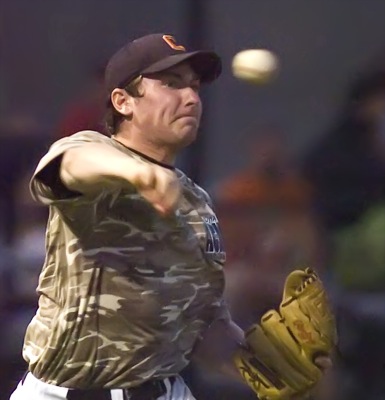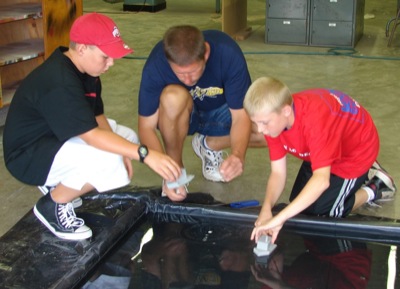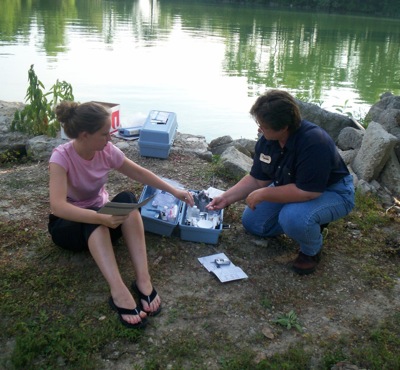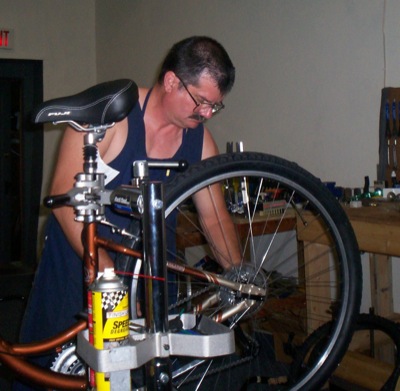Wednesday, July 23rd, 2008
Reports show new technology not cost effective
By Nancy Allen
While local findings show that geotextile tubes were successful in treating liquid hog and dairy manure, the tubes are not economically feasible for farmers at this time, said Laura Walker, coordinator of the Grand Lake/Wabash Watershed Alliance.
That was the finding in two reports done by Theresa Dirksen, a technician with the Mercer County Soil and Water Conservation District, and Tom Rampe, technical adviser with the Lake Improvement Association.
A grant and matching funds totaling $20,000 were used to put three geotextile tubes at a local hog farm and two tubes at a local dairy. Last fall the tubes were filled with manure and allowed to dewater for several months, a process whereby cleaner water filters from the geotextile tubes and the solids stay inside.
While the process worked, Rampe said the main problem is the tubes are not reusable.
"The problem is the bags (tubes) are too expensive to begin with," Rampe said. "If they could get it so the bags are reusable it could be more economically feasible ... I could envision it in the future, the bag having a big zipper."
Geotubes traditionally have been used to remove impurities from wastewater and dredge material. The initial reason local officials wanted to test the technology here is to give farmers a tool toward helping improve the water quality in the watershed.
Walker said she is still waiting for a promised report of findings from WaterSolve, the company that provided the polymers for the project. Polymers were added to the manure mixtures at both farms, which caused the solids and water to separate.
Walker needs WaterSolve's report to submit to USDA's Natural Resources Conservation Service, which gave a $10,000 grant to help fund the project.
Joint board members told Walker to send the report with the local information and a statement saying the remaining information would be forthcoming after a sit-down meeting with WaterSolve officials.
"He (WaterSolve official) said after talking to his board, that if their results were seen with Tom and Theresa's, it may be detrimental to their business," Walker said, adding the representative did agree to compile a summary of the project in two to three weeks.
In Mercer County, which has the highest concentration of large livestock farms of any county in the state, the technology could be useful to farmers trying to find ways to manage their manure with the least amount of impact to the environment.
A Geotube can capture most of the phosphorous in manure and the resulting cleaner water can be used to irrigate crops, feed livestock or be discharged, WaterSolve official Brian Mastin has said.
Removing much of the liquid from manure also makes the manure easier and more economical to handle and transport. Since it weighs much less and is in a dryer form, it can be easily scooped and spread.
Along with the $10,000 grant, the local project was funded with an additional $10,000 in matching funds from the Mercer SWCD, Maria Stein Grain, Coldwater Young Farmers and Lake Improvement Association.



